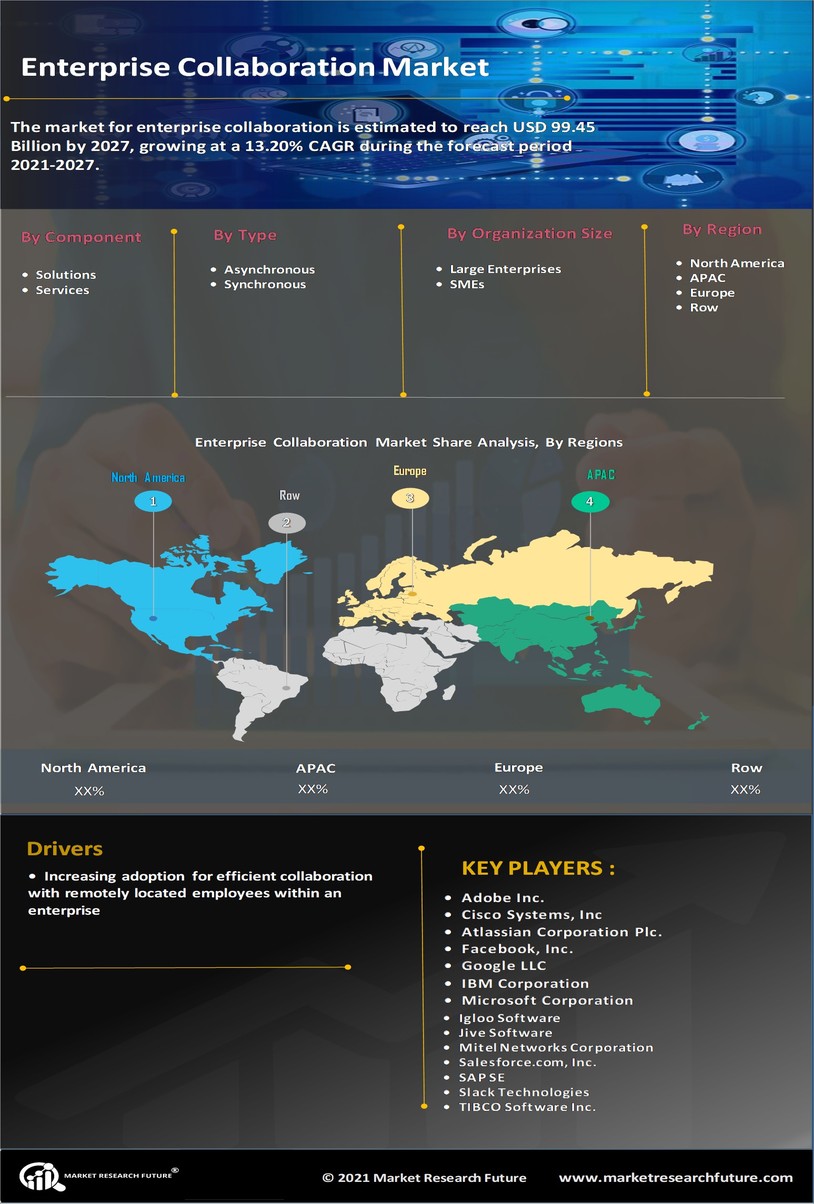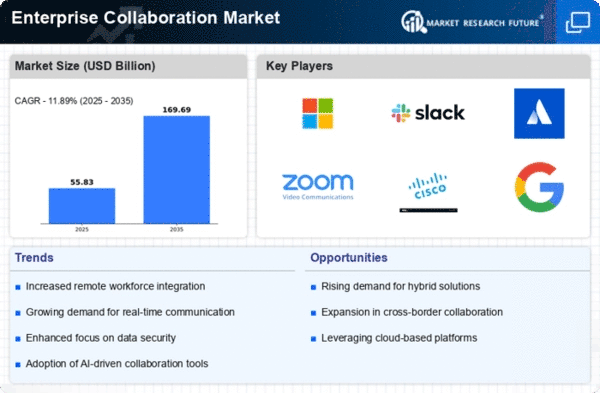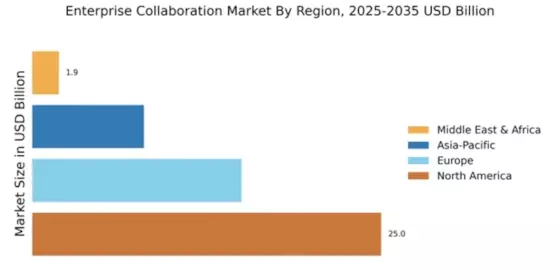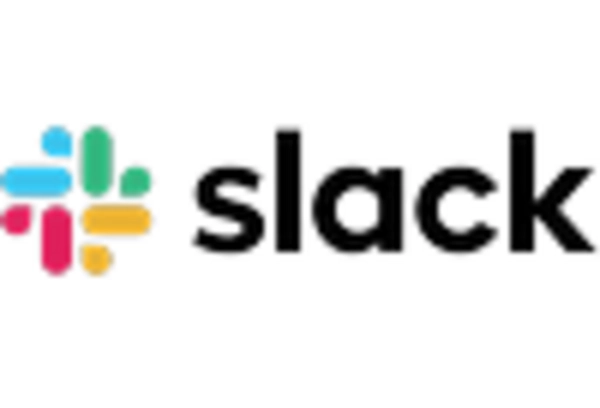Research Methodology on Enterprise Collaboration Market
The research methodology adopted by Market Research Future (MRFR) for the research report titled Enterprise Collaboration Market Global Analysis and Forecast 2023-2030 is iterative and consists of several steps. The research process was designed to be inclusive of both primary and secondary research methodologies.
The research methodology adopted for the report has employed several methods such as theoretical research, analytical research, expert interviews, and physical research. Market Research Future researchers conducted structured interviews with primary industry witnesses, end users, and vendors.
Data Collection:
Firstly, extensive primary research was conducted to collect relevant historical, present, and future market data. In addition to primary research, secondary research sources were collated to evaluate the competitor and regulatory environment in the market. Several industry expert interviews also helped MRFR to gain an in-depth understanding of the market dynamics and related technologies. Interviews were also conducted with industry experts, to gain additional insights into the enterprise collaboration market.
The report is based on an analysis carried out on various topics included in the report. This includes an analysis of the macro and micro economic environment, Porter's Five Forces Model, Value Chain Analysis, and a detailed review of the strategic business plans adopted by leading competitors in the industry. Moreover, the segmental analysis of the report is based on the regional analysis and product types.
Primary Research:
Primary research includes interviews with consumers, as well as interviews with industry experts to gain in-depth insights into the market dynamics. The primary research was conducted to understand the latest trends and developments in the enterprise collaboration market and validate the data compiled through secondary research.
Secondary Research:
MRFR utilized several secondary sources to develop the report. These sources include media channels, internet searches, financial reports, and other sources that had previously reported on the market.
DATA INTERPRETATION:
Based on the qualitative and quantitative data collected and analyzed through primary and secondary research approaches, MRFR used data interpretation techniques such as Porter's Five Forces Analysis, SWOT Analysis, PESTLE Framework, and Market Attractiveness Analysis to accurately interpret the data. Furthermore, MRFR also utilized statistical techniques such as Regression Analysis and Time-Series Analysis to accurately interpret the data in order to determine the growth rate of the enterprise collaboration market in the forecast period 2023 to 2030.
RESEARCH ASSUMPTIONS:
MRFR has considered the following assumptions for the study:
- Technological advancements in the enterprise collaboration market will drive growth in the projected period.
- Merger and acquisition activities in the market will fuel market share expansion.
- Increasing expenditure by enterprises on enterprise collaboration tools or software will drive the market.
- Increase in the adoption of cloud-based enterprise collaboration solutions will continue in the coming years.
- Regulatory compliance and data privacy concerns may hinder market growth in the forecast period.
- End users of the market mainly comprise large and medium-sized companies such as educational and medical institutions and the IT industry.
- Strategies implemented by the key players in the market will influence the overall dynamics of the market.
- Government initiatives and infrastructure development will propel the market growth during the assessment period.
REPORT SCOPE:
The report estimates the market size for 2023-2030. It also evaluates the competitive landscape and offers a detailed analysis of the regulatory environment and competitive scenario in the market. The report offers a comprehensive analysis of the market based on product type, application, and geographical regions.
REPORT OBJECTIVE:
The report aims to provide detailed insights into the current market scenario by offering a comprehensive analysis of the market based on segment, region, market size analysis, technological trends, competitive scenarios, and technological advancements. The report seeks to provide the interested parties with in-depth insights into the market's leading use case and potential areas, which can benefit the market in the long run. It should further aid them in formulating strategies to capitalize on the opportunities presented in the market.


















